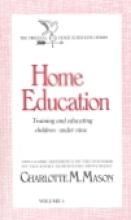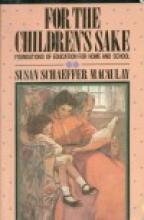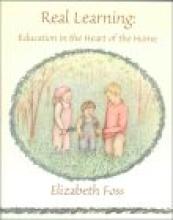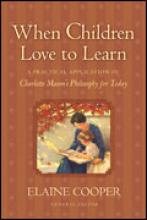Methods: Charlotte Mason
A Charlotte Mason Companion
Charlotte Mason's Original Home Schooling Series
6 volume set, reference work for adults.
Living books instead of textbooks for teaching. "Narration" or retelling what one has read, rather than fill-in-the-blanks workbooks. Short lessons of 10 to 30 minutes, leaving time for handicrafts and exploration in the afternoon. Plenty of time outside in God's creation, learning to draw and identify plants and animals. If you are using any of these ideas in your homeschool, you may owe a debt of gratitude to Charlotte Mason.
Charlotte Mason was a British Anglican educator of the nineteenth century. She founded a set of schools in Britain and also wrote a 6 volume series of books explaining her ideas and philosophy. These books have influenced many homeschoolers, including Catholic ones, whether directly or indirectly.
Charlotte Mason was an Anglican educator of the 19th century who had a significant influence on British educational thought. Her 6 volume set of books laying out her philosophy of education is still read today, particularly by homeschoolers who are attracted to her vision of a more natural education based on excellent books.
More and more Catholic homeschoolers are feeling her influence whether directly or indirectly. She believed strongly that the overriding principle of educational philosophy should be that children are "born persons" and that they should be treated as such. They should be given access to the thoughts and creativity of great minds expressed in literature, art and music, not isolated in a childish ghetto of "twaddle" - which was her word for teaching materials that talk down to the child. She believed that the hours spent in educating a child should be largely devoted to these "living" ideas, and that plenty of time should be allowed for free play, exploration of materials and most of all, time outdoors to strengthen and invigorate body and mind.
Of the six books, the first one Home Education: Training and educating children under nine is directed at mothers of children ages 6 to 9, assumed to be at home receiving the basics of literacy under the tutelage of the mother or a governess. It attempts to lay a foundation of training in good habits and knowledge of and reverence for God. It tells us that home is the best environment for young children, that obedience and attentiveness are foundational habits upon which all others build, that mothers owe a "thinking love" to their children, and that bad habits should be uprooted at the source before they have a chance to flourish. It also lays out some practical advice for teaching the basics of reading, ciphering, nature study and Bible study.
The second one, School Education, is subtitled "Developing a Curriculum" and discusses how to apply her educational philosophy to choosing a course of study for children in the middle grades. One particularly interesting feature of this volume is the Appendix, which gives sample exam questions and answers by typical students on different levels. It is helpful to look at not only to show the breadth and depth of learning a child can acquire but also to evaluate older children who are being taught by these methods.
The third volume, Parents and Children, is subtitled "The role of the parent in the education of the child". It has as its main premise the truth that families, not individuals, are the building block of society, and summarizes the thoughts of some scientists, psychologists and sociologists of the time in light of this premise. It tells how parents should rule, inspire, train, and teach their children.
Volume 4, Ourselves, is subtitled "Improving character and conscience" and is an attempt to discuss conscience and will in the light of her educational philosophy laid out in her other books. It has an allegorical theme of "The Kingdom of Mansoul" and is directed to children of (I would say) high school age. The fifth volume, Formation of Character: Shaping the child's personality is largely a series of stories written to illustrate how to develop character in children. It starts with a series of episodes identifying problem situations with children in home life - Kitty, who has the attention span of a butterfly, Guy, who falls into intense fits of rage, Agnes, who broods and sulks - and gives ideas on how to deal with these situations. The second part offers some biographies of individuals with particular emphasis on what influenced the development of their personalities. These two books seem more dated to me, perhaps because of the story format in which they are written.
The last one, called A Philosophy of Education and subtitled "Curiosity -the pathway to creative learning" is more generally written to other educational philosophers and defends the value of a "liberal education" for every child, not just those of the upper classes. Since it talks about what the goal of education should be, and what kind of citizen should be result, it is interesting to read for someone whose children are in high school and preparing to go out into the world.
A recurring theme of all the books is the gospel admonition that we must not, "Offend not, despise not, hinder not" the children or keep them from truth. She maintains that authority and obedience are the most important moral principles and the axis upon which all other moral laws must balance. The worst offense of parents against children is that they misunderstand and misuse this principle either by being arbitrarily harsh or arbitrarily mild. She contends that parents are not given children as property but as trusts to God and society, which they must fulfill responsibly. These are all, of course, in accordance with Catholic doctrine (see The Catechism of the Catholic Church on family and morals). Educational institutions are subordinate to the family and child, and a liberal education (by which she meant one fitted to expand the child's horizon) should be the birthright of everyone, not just a selected few.
Some have criticized some of Charlotte Mason's philosophies as un-Christian or un-Catholic. One example is her contention that "children... are not born either good or bad, but with possibility for good and evil." Some have felt that this denies original sin and allies Charlotte Mason with modern humanism. My sense from the context of her words is that she is making a distinction between original sin and actual sin. The fact is that an infant has never committed a personal sin, and that the sacrament of Baptism wipes out even the stain of original sin, while leaving a tendency to concupiscence. In this light, what she is saying is that any child can become a saint or a demon as a result of what they do during their lives. If you read her words in this way they are thoroughly orthodox and were stated as a counter to the Calvinism of her time, which contended that small infants were corrupt limbs of Satan and that the evil must be punished out of them.
Another criticism is that she spoke approvingly of thinkers like Rousseau who were violently anti-Christian and anti-Catholic. In fact, she did think it important to reference and discuss the works of philosophers of her time who had a wide influence, but her seeming object in doing so was to sort out what was true in their thought from what was false and dangerous.
There are parts of her books that will seem quaint, outdated and even self-contradictory to the reader. Some examples are the way she emphasizes wearing wool as superior to cotton or linen; or discusses the latest scientific theories that habits leave physical imprints on the brain. These types of things have to be taken in their historical context and referred to a more general principle - that physical health is important for mental health and that habits are the building blocks of virtue (these, of course, are also thoroughly Catholic principles). I find some of her specific precepts on training children a little bit impracticable and discouraging - she will say that a child should be trained in good habits, but without recourse to "direct use of fear or love, suggestion or influence, or by undue play upon any one natural desire". I am assuming she believes that a child's motive for doing well should be "for love of the good Lord" as St Therese's family taught her, but it is not altogether clear by exactly what steps one should guide one's child towards this highest and best of all motives.
And of course, lastly, this is not a Catholic series and one will not find mentions of the sacraments as the best ways to nourish the virtues in a family.
In general, this is a valuable series for the home schooling family. It is not an easy read. The most useful way I have found to read the books is to pick them up a little at a time. If you want a friendly introduction to Charlotte Mason's ideas, I recommend Karen Andreola's A Charlotte Mason Companion" or Susan Schaeffar Macaulay's "For the Children's Sake" (both written from a Protestant perspective). There are also several resources on the web.
Additional Comments: Although I bought the six volume series written by Miss Mason herself, I found it very slow going and hardly dipped into series. I recommend reading the books by Mrs. Macaulay and Mrs. Andreola before purchasing this series.
- Alicia Van Hecke (3-26-01)
For the Children's Sake
The information in this book is mostly gleaned from the writings of Charlotte Mason, a 19th century educator who has had a great deal of influence on the homeschooling movement of the late 20th century.
This book will help you look at your child's educational needs and potentials outside the realm of the "school system." The ideas and suggestions are fresh and creative (and especially helpful for the early years). I especially like her focus on introducing children to great art, great music and great literature. After reading her book, I put on a Mozart CD especially for my three year old daughter to listen to - and was delighted to discover that she loved it! A trip we made to an art museum became a treat for her and much more enjoyable for my husband and I because of some other ideas we tried from the book.
Her description of "twaddle" (books and materials that are inferior, "cheezy", - especially many books "written down" to a child's level. etc.) and why to avoid it is so refreshing. Some of these ideas could well be applied to Catholic books - which should not only be Catholic in content, but intelligent and beautiful in presentation. We live in a culture that encourages us to fill our lives with loads and loads of cheap clutter that's usually made in China. I'm trying to buy things more carefully. When choosing new materials for school or even toys for Christmas I'm trying to find things that are beautiful and lasting. This also forces me to buy fewer things because the quality can be more expensive. I believe this is better for my children and my sanity!
Real Learning
Elizabeth Foss, mother of seven homeschooled children (ranging in age from 16 down to toddler), has done a great job synthesizing her approach to "educating a child in the heart of the family given to that child by his Creator" in her book, Real Learning: Education in the Heart of the Home.
The book mixes Charlotte Mason's educational philosophy (lots of living books, short lessons and "masterly inactivity") with pithy quotes from Edith Stein, Pope John Paul II and other Catholic thinkers and educators. She points out that although Charlotte Mason and Edith Stein never met or read each other's writings both emphasize the "absolute necessity of engaging the whole child - heart, soul and mind - in order to educate him".
For the first third of her book, Foss explains her philosophy of educating in the home. It is a different way of looking at how to homeschool. She explains that no subject should be an entity unto itself but instead, all courses should feed off each other. Learning becomes then such a part of the student's world that learning is a "24/7" activity. I especially like that teaching the Catholic faith to our children is not taught in a vacuum. Liturgical celebrations - the cycle of feasts and famines - enliven the school year. The Catholic Church's actions and her many heroes illustrate different periods of history. Liturgical music (classical, chant or contemporary) defines different music styles. Art takes off by incorporating the study of various forms of religious art - iconography, renaissance, church architecture and others. Religion passes from textbook memorization into the heart and soul of the student, to carry them through to adulthood. The Catholic faith is lived in the heart of the home.
Mrs. Foss points out this is not a "how-to" book, but rather a "fly on the wall" perspective of real learning in the Foss (and other) household. Each home will develop its own curriculum. She has detailed quotes from other homeschooling veterans who also use their own form of Charlotte Mason education.
Suggestions for reading books, a sample unit study for Advent, and quotes from other "real learning" homeschoolers make Real Learning a very usable, practical guide to develop your own "real learning" curriculum. I read it at the beginning of my journey with my little ones and again about halfway through. Each time I took away so much more. I'll read it again this summer to refresh my teaching "in the heart of the home".




